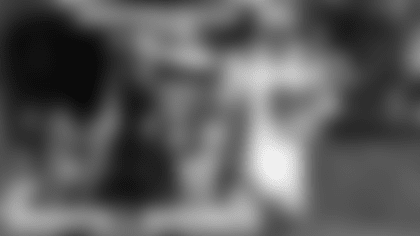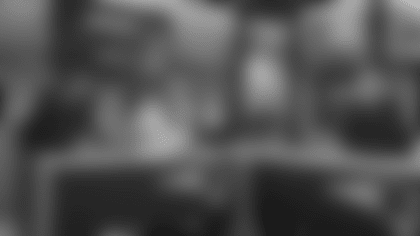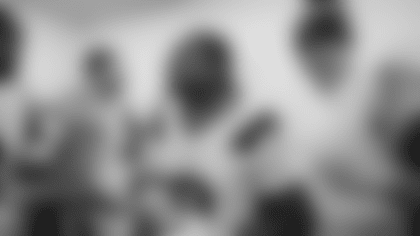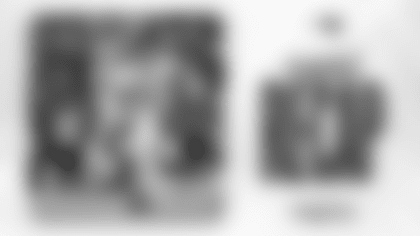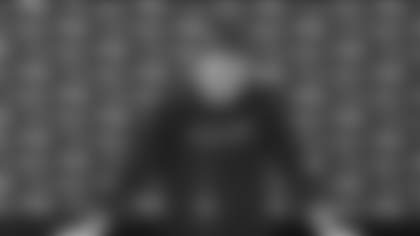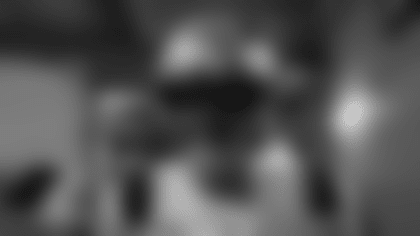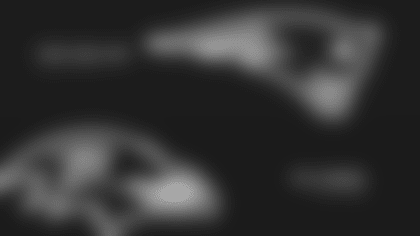PITTSBURGH (March 24, 2005) -- New Orleans Saints head coach Jim Haslett says he used steroids when he starred as a linebacker in the early 1980s, and claims the Pittsburgh Steelers' use of the drugs during Super Bowl championship seasons in the 1970s brought steroids into vogue around the NFL.
Haslett, the Steelers' defensive coordinator from 1997-99, made the comments in Hawaii, where the league is holding its annual meeting. They were published in editions of the Pittsburgh Post-Gazette and Los Angeles Times.
Steelers owner Dan Rooney, who ran the team during the 1970s, denied the Steelers pioneered steroid use in the NFL.
Haslett played in Buffalo from 1979 to 1985, and finished his career in 1987 with the New York Jets. He said he used steroids for one season early in his career.
"It started, really, in Pittsburgh. They got an advantage on a lot of football teams. They were so much stronger (in the) '70s, late '70s, early '80s," Haslett said. "They're the ones who kind of started it."
Rooney rejected Haslett's claims, noting the Steelers were known for smaller, quicker linemen who ran trap plays that required they be agile, not bulky.
"This is totally false when he says it started with the Steelers in the '70s," Rooney told the Post-Gazette. "(Then-coach) Chuck Noll was totally against it. He looked into it, examined it, talked to people. Haslett, maybe it affected his mind.
"Chuck Noll told the players, 'Hey, this stuff doesn't do you any good. If you just do the work, lift, things like that, you'll be all right,"' Rooney said.
At least one Steelers player from that era has admitted using steroids. Steve Courson, a part-time starter on Pittsburgh's last Super Bowl title team in 1979, has blamed a heart condition on steroid use. Courson has also said that teammates such as Jack Ham and Jack Lambert adamantly refused to use them.
Haslett estimated half the league's players, and all its linemen, took steroids in the 1980s before they were banned by the league. The league began testing for steroids in 1987, but players weren't suspended for using them until 1989. The league started using random, year-round drug testing in 1990.
Haslett starred at Avalon High School near Pittsburgh as a 160-pound quarterback, but played defensive end and weighed about 230 pounds in college at Indiana University of Pennsylvania. Haslett said he gained that weight by working out, but began using steroids shortly after he was drafted by the Bills in 1979.
"If you didn't (take steroids) you weren't as strong as everybody else, you weren't as fast as everybody else," Haslett said. "That's the only reason to do it. Everybody's looking for a competitive edge."
Haslett weighed about 250 pounds when he played in the NFL.
"Everybody wanted an advantage, so you tried it; I tried it. I mean, I tried it, everybody tried it," Haslett said.
Haslett cited the side effects of steroids as the reason he quit.
"I didn't think it was very good for you. I was hyper all the time. Got bloated, a fat face," Haslett said. "I'll tell you one thing about steroids, if you take them you still have to eat right and work your ass off. If you take them and you don't do anything, that doesn't do anything for you."
Haslett responds
The following is a statement from Saints head coach Jim Haslett in regards to this story.
My comments were intended to express my understanding of the NFL's Drug Testing Policy, which is the best in all professional sports. I was asked about the league's drug testing policy and the relationship to baseball. As a former player and now a coach in this league, I have a tremendous amount of respect for our game both now and in the past. We would be naïve to think that enhancing drugs were never used in our league, but the difference here is that the NFL recognized that steroid use was detrimental to our league and has implemented policies to ensure that it never would be an issue. I am a proponent of the NFL policies and was trying to explain the differences.
I was not intending to do any harm to anyone or any organization or the NFL with these statements and if I did I offer my sincerest apology. I have the utmost respect for Mr. (Dan) Rooney and what he has meant to the NFL and offer my apologizes to him and the Steelers.
My intent is to highlight how far our drug testing policy has come, how stringent it is and how effective it is.




